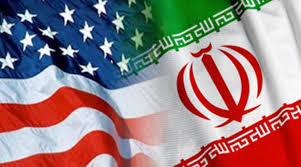Standard Chartered Bank’s Continuing Culture Challenges and Sanctions Compliance (Part II of III)

Standard Chartered Bank certainly has its troubles. You know a company is in trouble, however, when it breathes a sigh of relief after paying nearly $1.1 billion in fines and penalties and compares itself to BNP Paribas, the global French bank, which paid over $8 billion for pervasive US sanctions violations.
The Justice Department and OFAC have had a target-rich environment when reviewing global bank compliance with US sanctions. It is an important enforcement priority because global banks cannot engage in US dollar transactions without compliance with US sanctions – it is as simple as that.
According to the Factual Statement (here), the Justice Department confronted SCB officials with evidence of the criminal conduct and SCB provided substantial cooperation in the government’s investigation by providing significant evidence of criminal wrongdoing by SCB employees and customers involved in the scheme. In addition, since mid-2013, SCB has engaged in significant remediation of its US economic sanctions compliance program.

SCB’s continuing violations of the Iran Sanctions program was the result of a conspiracy conducted by two employees and a significant Iranian client at SCB’s Dubai branch during the years 2007 to 2011. In August 2007, SCB enacted a policy to suspend Iran business. Certain customers in SCB’s Dubai office sought to continue US dollar transactions with Iranian entities using deceptive means.
The two former SCB employees (Persons A and B) appear to be cooperating with the criminal investigation and will testify against the Iranian national, Mahmoud Reza Elyassi.
Persons A and B helped Elyassi open commercial accounts in SCB’s Dubai office knowing that the accounts were fronts for Elyassi’s business operations in Iran. Persons A and B helped Elyassi and other persons conduct transactions involving US dollars to benefit Elyassi and his Iranian businesses.
Persons A and B also advised Elyassi on ways to structure financial transactions to avoid detection of any connection to Iran. Persons A and B also provided false information in order to disguise the Iran connections of Elyassi and his companies. In several instances other financial institutions rejected payment requests from SCB on behalf of Elyassi’s companies, Persons A and B provided false information to conceal Iranian connections to try and resolve compliance concerns.

Over half of the US dollar transactions occurred because of deficiencies in SCB’s compliance program that allowed customers to order US dollar transactions via fax and online payment instructions submitted from sanctions countries, including Iran, without confirming the location of the customer requesting the transaction. SCB compliance employees in the UAE were aware of these risks and did not take adequate steps to identify the location of the customers.
In the case of Elyassi, Persons A and B knew that Elyassi resided in Iran and operated business accounts at SCB’s Dubai branch. Elyassi was listed in SCB bank records with both UAE and Iranian contact information, including a fax and phone numbers beginning with the +98 country code prefix assigned to Iran. SCB also maintained records of Elyassi’s Iranian passport. In a recorded phone call, Elyassi told Person B that he was in Iran and invited Person B to visit him in Iran.
Between 2008 and 2010, SCB stopped multiple payments for one of Elyassi’s companies based on Iran-related references in the payment instructions, includi8ng the names of various cities in Iran, as well as references related to Iran shipping lines. In June 2009 and September 2009, SCB blocked two outgoing payments from an ELyassi company to Iran banks. In August 2010 and again in January 2011, SCB was aware that outgoing payments from one of Elyassi’s companies were rejected by other financial institutions due to Iranian connections.
Person A and B also provided false and misleading information to SCB compliance in order to disguise Elyassi’s Iran connections. For example, Person A told SCB compliance that Elyassi did not have any branch operations outside of Dubai.
In December 2010, SCB decided to terminate its banking relationship with one of Elyassi’s companies based in part on the number of payment requests stopped by SCB and other correspondent banks because of Iran sanctions concerns. Persons A and B helped Elyassi to create a new company account for a second Elyassi company to resume the transactions. Elyassi named a non-Iranian person as the nominee of the new company and Persons A and B knew that Elyassi continued to control the operation of the new company. Elyassi was authorized to sign for the new account and much of the contact information was the same as the prior, closed account.

Persons A and B instructed Elyassi on how to structure transactions going forward to avoid suspicion by SCB and other banks. For example, in a recorded telephone call, Person A told Elyassi not to send payments to Iranian individuals directly from the new company account but to have the nominee transfer the funds from the company’s SCB commercial account to the nominee’s personal account at SCB Dubai and then send payments to the Iran individuals to avoid having the company account monitored and possibly closed. Eventually, SCB Dubai closed this second company account in September 2011.
Persons A and B assisted other Iranian nationals with accounts at SCB Dubai to circumvent Iran sanctions to complete US Dollar transactions.
By December 2009, SCB officials knew that SCB Dubai’s SME business posed a high risk of Iran sanctions violations because of: (1) the close proximity of Dubai to Iran; (2) the large number of Iran nationals operating SMEs in Dubai; and (3) corporate clients associated with Iran nationals. Additionally, senior SCB officials were aware of the risk that UAE-based general trading companies could be subsidiaries or branches of parent companies in Iran.
In May 2011, high-level SCB compliance employees had compiled a list of GTC customers of SCB Dubai whose transactions were being declined based on potential Iran Sanctions violations. SCB compliance professionals were not able to block a large number of suspect transactions.
SCB’s compliance program was not equipped to mitigate the significant risks of Iran-related transactions in SCB’s Dubai office. It was insufficiently staffed and inadequately resources. Although SCB was aware of the high-risk nature of many of its SCB Dubai customers, SCB failed to allocate sufficient employees to review customer due diligence and KYC documents.














